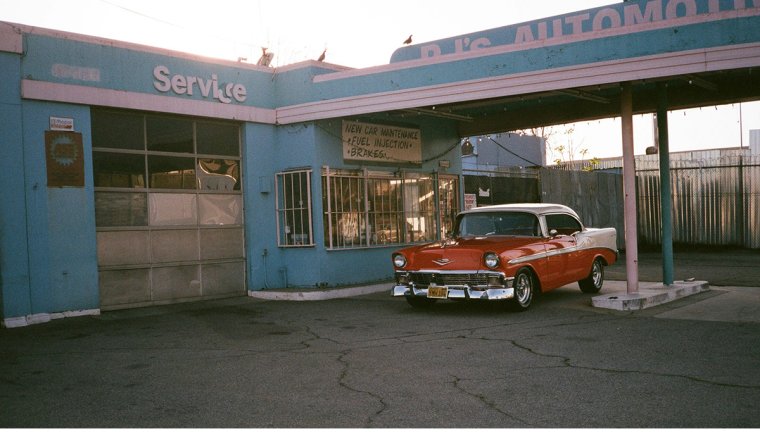In our Craft Capsules series, authors reveal the personal and particular ways they approach the art of writing. This is no. 193.

Earlier this month I had the pleasure of speaking on a panel at the Tucson Festival of Books. Ostensibly centering emerging trends in Latinx poetry, the panel afforded me and my fellow panelists—Tim Z. Hernandez and Reyes Ramirez—the chance to discuss craft and practice as well as address questions of language, legacy, and family. To my great fortune my father was in the audience; he’s added “winter” as a verb to his retiree’s lexicon and spends a few months every year “wintering” in Arizona. (I get it. The Sonoran desertscape, warming after rare spring rainfall, released woody, earthy creosote into the morning air, a welcome respite from the persistent allergens of central Illinois, where he lives the other months of the year.) It was a gift to have my dad seated so near, front and center and “beaming,” as Tim described it, like the proud papá I know he is. But it also presented a unique challenge, since so much of my poetry collection, Yaguareté White—published last month by the University of Arizona Press and the raison d'être for my presence at the festival—incorporates a great deal of information from my own personal life; and it relies in no small measure on translating those facts into poetic truth, particularly as they pertain to my family.
Take, for example, one stanza from my poem “Inheritance,” in which an antique sedan becomes a physical manifestation of the behaviors, beliefs, and, yes, material things we receive from our ancestors:
Before I was born, my father bought a ‘57 Chevy:
bright green, gas cap inside one silver tailfin.
Ran like shit. Poured smoke. No seat belts.
My father drove me home from hospital in that thing.
We sideswiped another car on Camelback Bridge in Normal.
Years later, I never learn which party was drunk driving.
I have fond memories of the car in question, a 1957 Chevrolet Bel Air. It was never in great condition, and, in fact, everything in the above excerpt aligns with objective reality, save that stinging, final line. To be fair, I don’t know whether the other motorist was intoxicated, and I’ve been assured my father wasn’t drunk at the time. But the theme of alcohol use and abuse surfaces and recurs in my book as a personal, familial, and cultural phenomenon. Alluding to alcohol in an anecdote from the speaker’s earliest days on Earth connects the thorny subject back to his nativity, as if the narrative of the accident and its possible connection to alcohol were as much a part of him as his predecessors’ languages and customs. In truth, the possibility of the father’s drunkenness, the lingering question about it in the speaker’s mind, accurately reflects the way substance abuse affects nearly every aspect of my and my family members’ lives. It feels important to include these uncomfortable truths, despite the danger of emotional or relational damage they may pose.
A poem later in my book takes another kind of liberty with facts. “Mom Puts Miguel’s Two-Week Sentence for DUI in Perspective” is a syllabic persona poem spoken by an imagined mother. A single long question, the poem is composed of tercets. “Remember when / we used to go / to Paraguay,” it opens, and concludes:
no child
of mine
should spend
even small time
behind
bars in county,
and don’t you
remember
how we’d all
go together and
the first week always
felt like forever?
The poem compares the multiple weeks our family spent in Paraguay during winter visits to the seemingly endless fourteen days of a felony sentence, and the poem’s wavering syllabic pattern is intended to mimic the speaker’s discomfort with the prospect of her son’s imprisonment. But my real brother doesn’t have a DUI on his rap sheet, and I felt it necessary to include a disclaimer in the book’s after-matter: “Only the imagined Miguel of this manuscript served time for a DUI.” When I shared this poem with my brother during a camping trip last summer in central Illinois, he appreciated it. He may have even said the note with the disclaimer was unnecessary. But not everyone will share my brother’s nonchalance about being written about. Many poets’ families won’t understand the lines drawn between factual reality and poetic truth. Indeed, there’s a violence inherent in translating into poetry these kinds of sensitive facts about one’s family. When I say it’s a violence, I mean that somebody might get hurt. This is a risk poets may find themselves needing to entertain. For some, changing names or adding annotations in a book will suffice. For others, no amount of fictionalization will assuage family members. In yet other instances we may want to name everyone exactly as they are. In any case, the emotional and reputational stakes shouldn’t be dismissed. Instead consider what constitutes truth for you and how best to extract it from facts; those questions should sit at the heart of our work as poets, whether we’re basking under the Sonoran sun or slogging through another spring freeze in Chicago.
Diego Báez is the author of the poetry collection Yaguareté White, published last month by the University of Arizona Press.
Art: Stephanie Valencia






